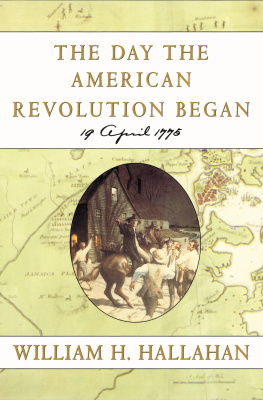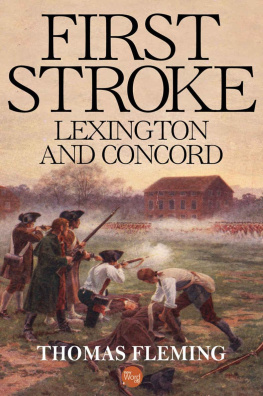THE SPIRIT OF 74
ALSO BY RAY RAPHAEL
Constitutional Myths: What We Get Wrong and How to Get It Right
Mr. President: How and Why the Founders Created a Chief Executive
Revolutionary Founders: Rebels, Radicals, and Reformers in the Making of the Nation
(co-edited with Alfred F. Young and Gary B. Nash)
The Complete Idiots Guide to the Founding Fathers and the Birth of Our Nation
Founders: The People Who Brought You a Nation
Founding Myths: Stories That Hide Our Patriotic Past
The First American Revolution: Before Lexington and Concord
A Peoples History of the American Revolution: How Common People Shaped the Fight for Independence

2015 by Ray Raphael and Marie Raphael
All rights reserved.
No part of this book may be reproduced, in any form, without written permission from the publisher.
Requests for permission to reproduce selections from this book should be mailed to: Permissions Department, The New Press, 120 Wall Street, 31st floor, New York, NY 10005.
Published in the United States by The New Press, New York, 2015
Distributed by Perseus Distribution
LIBRARY OF CONGRESS CATALOGING-IN-PUBLICATION DATA
Raphael, Ray.
The spirit of 74: how the American Revolution began / Ray Raphael and Marie Raphael.
pages cm
Includes bibliographical references and index.
ISBN 978-1-62097-127-7 (e-book) 1. United StatesHistoryRevolution, 17751783Causes. 2. MassachusettsHistoryRevolution, 17751783. I. Raphael, Marie. II. Title.
E210.R37 2015
973.3'1dc23
2015008420
The New Press publishes books that promote and enrich public discussion and understanding of the issues vital to our democracy and to a more equitable world. These books are made possible by the enthusiasm of our readers; the support of a committed group of donors, large and small; the collaboration of our many partners in the independent media and the not-for-profit sector; booksellers, who often hand-sell New Press books; librarians; and above all by our authors.
www.thenewpress.com
Composition by dix!
This book was set in Fournier MT
Printed in the United States of America
10 9 8 7 6 5 4 3 2 1
CONTENTS
O n December 16, 1773, patriots whose faces were darkened by lampblack and paint dumped 342 chests of tea into Boston Harbor. On the morning of April 19, 1775, sixteen months and three days later, local militiamen confronted British redcoats at Lexington and Concord, where blood was shed and war began.
The Boston Tea Party and the shot heard round the world are critical markers in the saga of our nations founding, and chronicles of the American Revolution inevitably feature both events, linking them in some way. Most say that to punish Boston for its wanton destruction of private property, Parliament passed four bills it called the Coercive Acts and Americans later dubbed the Intolerable Acts. The Boston Port Act, which closed its port, was supposedly the most drastic of these, as one textbook claims. Another says that by punishing that city, Britain intended to isolate it, but the act had the reverse effect: Americans in all the colonies reacted by trying to help the people of Boston. Food and other supplies poured into Boston from throughout the colonies. To support the city and oppose Britains draconian policies,
This story line travels quickly from the raid on the tea ships to the outbreak of war. Months pass unnoticed. Yet in this neglected time, nearly lost in telling, lie answers to questions central to the understanding of Americas founding. Why did Bostons act of political vandalism lead to a British military expedition against small towns in Massachusetts sixteen months later? How, exactly, did evolving political tensions result in actual warfare?
In the pages that follow, our story slows, pausing at additional markers that are often bypassed or slighted and featuring events that, step-by-step, drove revolution forward. Only in a full telling is war a plausible outcome.
The catalyst here, as in traditional narratives, is the destruction of tea, which triggered Parliaments punitive response. But if closing Bostons harbor was a severe punishment, it was not Parliaments most drastic act or the final insult in a long list of abuses, as textbooks state. That dubious honor goes to An Act for the Better Regulating the Government of the Province of the Massachusetts Bay, generally called the Massachusetts Government Act, passed seven weeks later. In this measure, Parliament unilaterally gutted the 1691 Charter for Massachusetts. No longer could citizens call town meetings except with permission of the royal governor, and once they met, they could not discuss any items the governor had not approved. No longer could the peoples representatives choose the powerful council, the body that functioned as the legislatures upper house, the governors advisory cabinet, and the administrative arm of provincial government. No longer did the people have any say in choosing jurors and no longer would the council, now filled by Crown appointees, contest
When the Boston Port Act took effect, colonists far and wide sent relief, held meetings, passed resolutions, or declared days of prayer and fasting. But after passage of the Massachusetts Government Act, citizens in Massachusetts, through collective and forceful resistance, made the act inoperable by shutting down the government. In August 1774, when the act took effect, citizens forced all thirty-six Crown-appointed councilors to resign their posts or flee from their homes. They convened town meetings whenever and wherever they wanted, even in Salem, a stones throw from Governor (and British general) Thomas Gages office. They besieged the all-important county courts whenever one was slated to convene and prevented these imperial outposts of judicial and executive authority from doing business of any kind. At their hands the Massachusetts Government Act became a blank piece of paper and not more, in the words of one contemporary.
Without a shot being fired or any loss of life, Massachusetts citizens eradicated every vestige of British authority in the provinceexcept in Boston, the armys command post. In short order, they replaced British rule with an extralegal assemblage of committees of correspondence, county conventions, and a Provincial Congress, buttressed by militia from every township. If revolution denotes a forceful overturning of political authority, the Massachusetts Revolution of 1774 certainly qualifies.
Rebels expected that Crown officials, after losing control of Massachusetts, would try to take it back, so to secure the revolution they had just made they readied for war. This was the premeditated work of months, not precipitous or random. The newly formed Massachusetts Provincial Congress raised tax monies to procure a huge arsenal, acquiring, by March 1775, not only armaments but also provisions to support an army of fifteen thousand men. Congress thought of everything, from ten tons of brimstone for the manufacture of gunpowder, to fifteen thousand canteens, to twenty casks of raisins and barrel upon barrel of beef and salted fish.
In London, King George III abandoned all hope of a peaceful settlement. He declared that Massachusetts was in a state of rebellion and that blows must decide the outcome. Royal officials ordered Governor Gage to suppress the rebellion with military force but, recognizing that his soldiers were greatly outnumbered and shying away from direct confrontation, Gage opted instead for a surgical strike on rebel arms and provisions. Intelligence sources indicated two major depositories, one in Worcester and another in Concord. While Worcester was distant and its rebel populace numerous and entrenched, Concord could be reached in a matter of hours.
Next page







